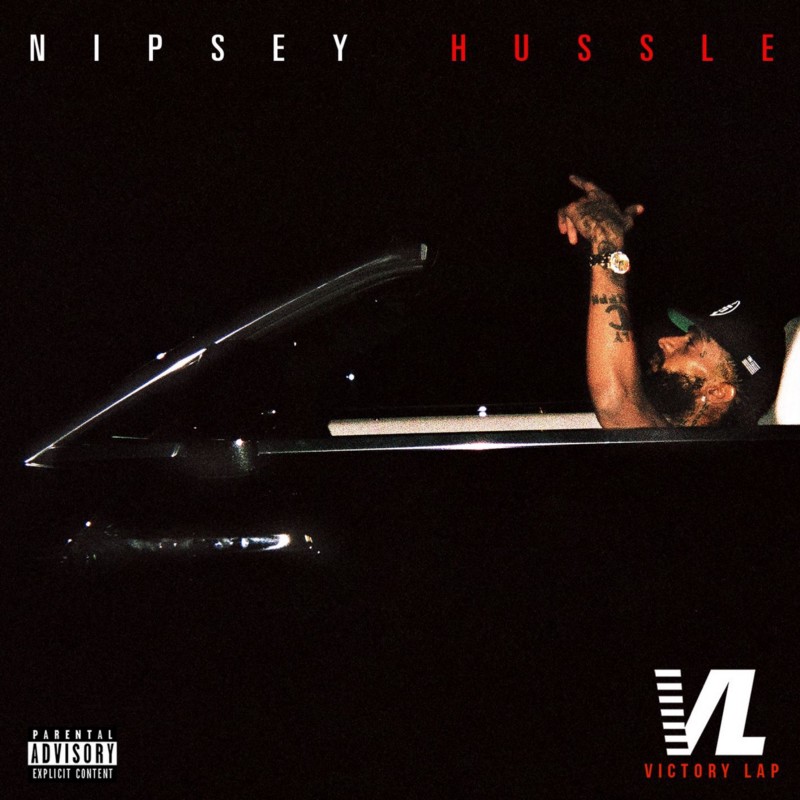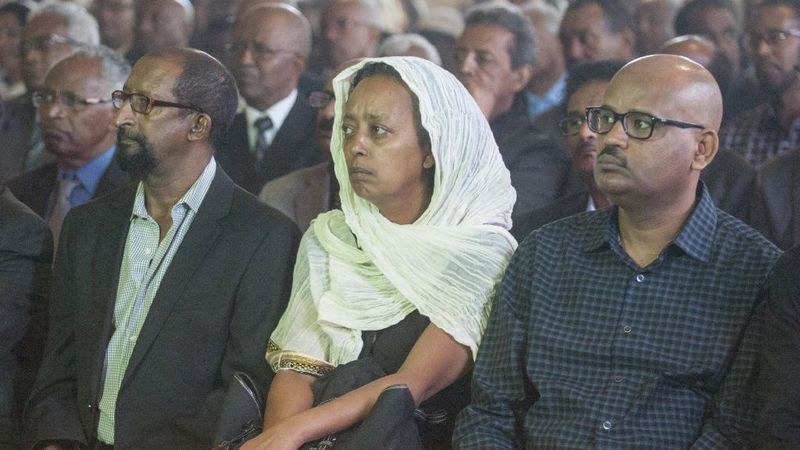The question I keep hearing from outsiders is “why was he so important?” My initial reaction is to become defensive, but in all fairness, there are too many people in the world to expect that everyone I meet will understand the impact that Ermias “Nipsey Hussle” Asghedom had. In short, the best answer to this question is that Nipsey Hussle was a social, economic, musical, and intimate example of who a young black millennial in Los Angeles would want to become.
Growing up in Los Angeles, at some point we realize how gang culture and socioeconomics run parallel. The world paints this picture of gangs in red or blue going to war over colors and territory that ultimately leads to the destruction of neighborhoods and cities. While there is plenty of truth to that, originally gangs were formed to protect their hoods from infiltration, gentrification and white supremacy. Although Hussle was always transparent about his involvement in both the dark and light to being a Neighborhood 60 Crip, in his later years he urged gangs to revert back to their origins of: protecting their environment, abiding by a code of ethics, bringing money into the community, respecting elders and children — all things that mainstream media forgets to mention when they talk about gang culture.
Some would argue that for the new era, he’s the reason why Bloods and Crips have slowed down on murdering one another. He shifted this narrative by befriending and collaborating with Bloods like West Coast MCs YG, and The Game — not to mention, directing music videos in which the imagery depicts red and blue side by side.
“I know some Inglewood niggas showed a crip love, he was like ‘that nigga Nip kinda sick blood’ know some Eastside niggas bang my shit tough, it’s all love even to my homeboys that switched up.” His lyrics shared a message of unity between rival gangs born through their shared love of rap. It shocked the world on April 5th, 2019, when nearly every Los Angeles gang — crips, bloods, rivals from all sides — came together to form a peace treaty. Everyone expected Nipsey’s death to perpetuate more gang violence, but instead his passing was met with peace. To think that something of this magnitude could take place over one man’s death is just another testament to his greatness.
Nipsey’s rap lectures on gang ethics were never overshadowed by his message of commitment to building wealth in the Black community; through his insightful dialogue, he often found a way to streamline the two. During his time here, Hussle revolutionized the music industry by sticking to his “No Middle Man” and “Proud 2 Pay” mottos. Since 2005, he put out twelve album-quality mixtapes under his own distribution label, All Money In No Money Out, avoiding major label vultures. After an already lengthy discography, his fans begged him for an official debut album.
Finally, on February 16th, 2018 Nipsey released Victory Lap after signing a one-of-a-kind deal with Atlantic Records. He described it himself as “an unprecedented strategic partnership for our music, with a company that understands individuality, integrity and the value of service at the highest level.” Rightfully titled, Victory Lap was Nipsey Hussle’s final form. Through the sound of his evolved bravado and orchestral production, we experienced a timeless ghetto symphony. With an official album release and a Grammy nomination for best rap album, Hussle exceeded expectations. He had followed through with all of his promises to his fans and showed future artists that the music industry can only enslave you if you allow it. It was a call to action to boss up on all spectrums.
Following his own blueprint, Hussle began investing in the tech industry, opened The Marathon clothing store, Stevie’s Barbershop, Vector 90 — a STEM research center and co-working space for creatives in the inner city — and was on the brink of becoming a real estate mogul. All of these businesses earned him a Forbes article as well as political acknowledgment. However, the most notable aspect of his ownership was not his acquired wealth or accolades, but instead the fact that all of these entities were co-owned by his family, friends and peers. Needless to say, the employees were also people of the community. The Marathon Store even employed felons who faced trouble finding work and leading legitimate lives after incarceration. Based on the needs of his people, Nipsey created a business model that displayed firsthand what building laterally meant, and he did it in the heart of the Crenshaw district — a place that many feared to step foot in.
It takes a special type of business awareness to be able to empower others without enabling them. Hearing from those who had the opportunity to work with Nipsey, it was very clear that before getting into business you had to have a sense of direction and a plan. In a famed tweet he wrote, “I taught all my n*ggas how to fish. Some caught more than others, some said they rather be fed, some passed me up in the process but at the end of it all I know I ain’t hide the game from my people and I’m real for that.” This mentality of natural selection within business has been the cornerstone for many lessons and economic triumphs in the Black community of Los Angeles.
One particular triumph arrived through his younger sister, Samantha Smith, a hood sweetheart, public speaker and esthetician. Samantha practiced as a skin care professional for some time before deciding to start her own skin care business, GLO by Samantha, in 2018. While she surely read a few pages out of her brother’s book, her plan and her story are all her own. In an interview, Nipsey himself expressed how proud he was of her new endeavor and validated that there was no nepotism involved in her process. Having an icon for a brother, yet still finding it necessary to create a name for yourself speaks to the character that fills the bloodlines of the Hussle family.
While he showed love to his people by giving away free game, he also made sure that intimate love was a priority. His relationship with South Central’s princess, Lauren London, was an example of Black love that many aspired to. What made this pair special to us was their representation of an LA made union. We see the man — tall, tatted, familiar, a protector and provider — and the woman — down to earth, gorgeous, and adorned in Slauson gold with her own identity. Lauren reflects so many women from LA’s inner city and Nipsey reflects so many men. They raised a blended family and despite their busy schedules, were always seen together. From an admirer’s perspective, their relationship was a balance of realness and romance.
Although much was kept private, the couples’ public displays of affection sparked a conversation for many young men to go against what the streets may have taught them and treat their women with high regard, like Nipsey treated Lauren. Lauren reciprocated through loyalty, motherhood, words of encouragement and joy. In a recent video for GQ magazine, Lauren asked Hussle, “What is your favorite thing about me,” to which he replied “Your spirit.” Just like one of his favorite singers Sade once proclaimed, this was no ordinary love.
They say it’s impossible to have everything at once, but Ermias seemed to have it all. He figured it out despite being born into a neighborhood that mirrored a war zone. He was relatable because he was dealt the same cards a lot of us were dealt. Just like us, he faced the reality of becoming a product of his environment since birth. Instead of being victimized by a system designed to fail black men, Nipsey Hussle chose to beat the odds by way of his very own design. The neighborhood adored him, not because he was a good rapper or a rich Crip, but because he was accessible and made it his mission to share the wealth of knowledge with his people so that we can one day see a different horizon.
On March 31, 2019 we found out that it wasn’t just LA that loved him, the whole world did. With vigils and dedications held from Crenshaw and Slauson to Eritrea, a public statement of grief from the Los Angeles Police Chief, and an address from Congresswoman Karen Bass, his accomplishments will be catalogued in history books. Hussle’s mission will continue through the millions that follow his example.
Dawit Asghedom, left, father of Nipsey Hussle, and Asghedom’s cousin Aida Ghidey, center, at a memorial for Nipsey Hussle at Medhani-Alem Eritrean Orthodox Tewahdo Church in Los Angeles on Sunday. (Ana Venegas / LA Times)
Passing at the age of 33, by numerology wisdom he ascended a master teacher. The city — excuse me — the world will honor his legacy forever. That being said, the next time someone asks me why Nipsey Hussle was so important, I’ll tell them to read this…
In the name of Ermias “Nipsey Hussle” Asghedom, August 15th, 1985 — March 31st, 2019…
“The Marathon Continues.”
Originally Published on Can’t Buy Respect *





